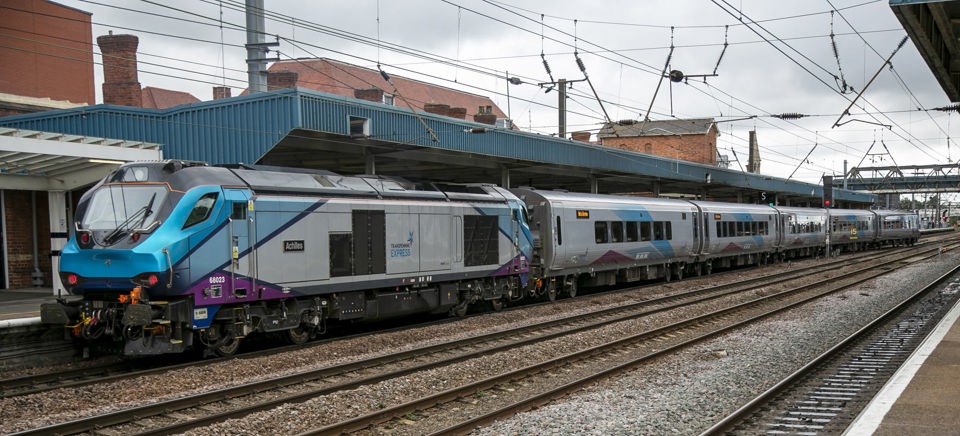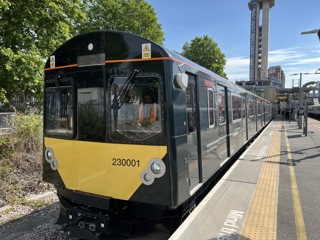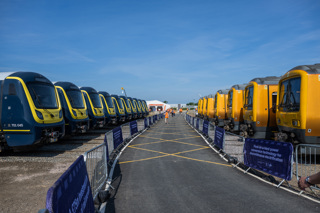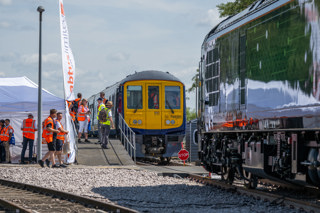One of the strangest aspects of the current structure of the railway industry is that effectively, four train operating companies have already been nationalised, as they are run by the government’s Operator of Last Resort.
They can be considered as the vanguard of the ‘renationalisation’ policy that is at the heart of Labour’s plans for the railways. Except that there is an inherent problem - they have been taken over precisely because they were failing in the private sector.
One of the strangest aspects of the current structure of the railway industry is that effectively, four train operating companies have already been nationalised, as they are run by the government’s Operator of Last Resort.
They can be considered as the vanguard of the ‘renationalisation’ policy that is at the heart of Labour’s plans for the railways. Except that there is an inherent problem - they have been taken over precisely because they were failing in the private sector.
The four franchises - LNER, Northern, Southeastern and TransPennine Express - are the testing ground for the operation of franchises as part of a government-owned organisation.
But because they were failing, they are not a representative sample. Those running them face an uphill task to show that taking back operations in-house is a good idea that will lead to the crucial improvements which politicians can claim as a success for their policies.
This is by no means ideal. It would be much easier if successful franchises were incorporated into the new structure. But, as I have written previously (RAIL 1015), this cannot be done until the new Passenger Railways Services Act is passed in the autumn.
When talking to senior managers who have taken over these faltering franchises, they invariably point to how it is easier to get things done under the umbrella of the Operator of Last Resort, rather than in the old system when they were in the private sector.
One of these testing grounds is TransPennine Express (TPE), which was taken over by the Department for Transport last summer, after services deteriorated to such an extent that passengers complained they could no longer rely on their rail network.
But after a difficult period, TPE’s new management now feels confident enough to have invited a group of journalists to its maintenance depot in Ardwick for a briefing on progress.
TPE had become a byword for the industry’s ills, with widespread media coverage of its poor performance under FirstGroup management in the summer of 2023. At one point, cancellations reached one in eight trains, and it was therefore no surprise when the contract was not renewed.
Things were indeed dire. And they were not improved by the fact that new trains, CAF’s Mk 5A Novas, were performing so badly that the 13 five-coach units were deemed surplus to requirements and returned to their leasing company.
While it was a brave decision to ditch rolling stock that was barely five years old, at best only four of the sets had been in use daily. And with three other classes of trains in use by TPE, they added unnecessary complexity in terms of driver training.
New Managing Director Chris Jackson, who took over after the termination of the contract, set himself three clear targets: to ensure the recovery of train performance; to improve relations both internally (code for sorting out the trade unions) and externally (code for passengers); and ensuring the operator was properly prepared for the huge Transpennine Route Upgrade (TRU) programme.
There is certainly a lot of optimism about, with the operator planning to restore the 25-or-so services that had been cut from its daily total of 325 in December last year in response to its series of problems.
One of the advantages of being under the wing of the government’s own operator is that it became easier for decisions to be made that involved investing in order to bring in extra revenue.
Some 300 new staff have been recruited, improving customer service and reliability. The most pressing staffing problem was the lack of driver availability, and a rest day working agreement which had been ‘on the shelf’ for some time was negotiated successfully with drivers’ union ASLEF, enabling a much bigger driver training programme to be introduced.
“We are not short of drivers,” Jackson emphasises.
That is not the issue, but rather drivers having the right knowledge and ability to use diversionary routes, which has become even more necessary because of the upgrade programme.
Jackson explains: “We will have around 150 days every year when routes are blocked because of the Transpennine Route Upgrade. Therefore, having diversionary routes available is absolutely essential to keep services operating.”
Jackson also stresses the importance of driver flexibility that has been enabled by the rest day agreement. It runs out early next year, and he is very keen to get a long-term arrangement in place.
In the meantime, he is confident that his announcement of the restoration of the full timetable will be realised, and that this will help attract people back onto the railways. And he is aware that it is not only reliability that is required. Passengers also need a better offer.
Coincidentally, although we were talking before publication of the last issue of RAIL, he referred to the subject I covered in that issue’s column about the need for WiFi on trains.
Jackson is investigating how much it would cost to remove the cap on the amount of data that could be used on trains.
As I mentioned in that article, it is the operators who restrict the amount of data that comes through the equipment housed in the roof of trains, because they pay for it per megabyte. Yet, to allow full coverage would, apparently, only cost around £200,000 for the train company, which may well pay for itself in terms of extra passengers.
This is the right sort of thinking. Train travel has to be made more attractive, and it is not just about reliability. That should be at the top of the agenda for whoever is going to be taking the reins of Great British Railways.
People such as Chris Jackson and Steve White, the managing director of Southeastern (whose scheme to ensure a far more diverse and local workforce I wrote about earlier this year, RAIL 1006), have shown that far from being a handicap, working in what is effectively the public sector can be commercially effective, too.
Of course, giving value for money is important. But there is a freedom in the public sector afforded by the lack of hungry profit-maximising shareholders.
There is a wider point here. In several discussions with industry people recently, they have argued that the transfer of operations into the public sector will remove ‘incentives’ to provide a good service and to attract more passengers.
I have heard this same argument about ticket retailing. We need the third-party retailers, I am told, because they bring in extra revenue, as the old BR had no incentive to sell tickets.
This is poppycock. Great innovators such as Chris Green made great efforts to bring in more passengers with all kinds of offers and initiatives.
It is a reflection of the politics of the past 30 years that people have been persuaded that managers and staff need a financial incentive in order to perform well. Great British Railways should be a way of challenging that defeatist concept.
Login to continue reading
Or register with RAIL to keep up-to-date with the latest news, insight and opinion.



















Login to comment
Comments
No comments have been made yet.